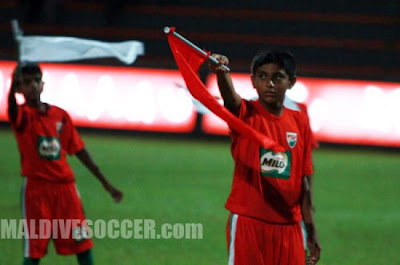 Maldivesoccer.com report:
Maldivesoccer.com report:Male’, MALDIVES – Maldives has been included in the FIFA women’s ranking after being excluded temporarily. Maldives lies at the 94th position of 98 team ranking. Maldives got the chance mostly because FIFA has excluded 16 nations from the rankings after being inactive for more than 18 months. India is one country that has been dropped for being inactive for more than 18 months. India, who were ranked as high as 50 in the last list released in March, dropped 49 places and are now out of the list that ranks teams up to 98 places.Some other countries that have been dropped for being inactive for more than 18 months include, Columbia, Peru, Chile, Ecuador, Uruguay, Paraguay and Egypt. Cuba, Jordan, Maldives, Uzbekistan and Venezuela return to the world rankings after having been temporarily excluded from the list due to their inactivity.Currently the USA leads the rankings followed by Brazil and Germany.
Women soccer in Maldives can soars to greater height with the cooperation of the Ministry of Youth and Sports, Ministry of Education and of course Football Association of Maldives. The present training program by FAM can be better enhanced through organising of competitions to enable the coaching panel to scout for more young potential talents in order to have a larger pool of girls, to train and groom into better players. Inter-schools or inter-department Futsal tournament can be organised for a start. These competitions will not only be useful to the coaches in selection but will also be a additional exposure to the present group of players to have more competitive experiences. If we dare to dream then there is the opportunity that the dream may come true!





